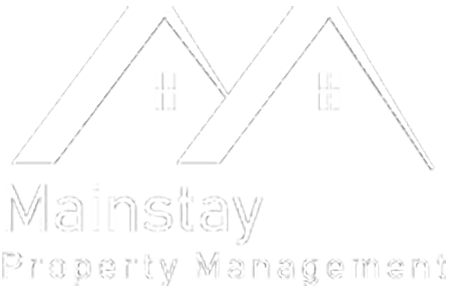For rental property owners in Silver Spring, MD, and across Montgomery County, managing Homeowners Association (HOA) fees is a standard part of the investment landscape.
Since these fees can be substantial, often covering exterior maintenance, community amenities, and shared services, landlords frequently ask: Are HOA fees deductible on a rental property?

The short answer is yes, HOA fees are generally 100% deductible as a necessary operating expense against your rental income.
However, classifying these deductions correctly and understanding the specific tax environment for rental expenses is crucial for remaining compliant with IRS rules and maximizing your returns.
Disclaimer: Mainstay Property Management does not provide tax advice. Please consult with a qualified tax professional or CPA regarding your specific tax situation.
The Tax Treatment of HOA Fees
The IRS views HOA and condominium fees (sometimes called special assessments or regular assessments) as ordinary and necessary expenses required to maintain your income-producing rental property.
1. Deduction as an Operating Expense (Standard Fees)
The most common HOA charges—the regular monthly or quarterly fees—are deductible in the year you pay them. These fees cover day-to-day items that support the rental, such as:
- Lawn maintenance and landscaping of common areas.
- Snow removal and external lighting.
- Insurance for the common elements (like the clubhouse).
- Maintenance and repairs of community amenities (pool, gym).
You report these payments on IRS Schedule E, Supplemental Income and Loss, under the “Expenses” section, typically categorized as “Repairs” or “Other Expenses.”
2. Capital Improvements (Special Assessments)
The deduction rule changes if the HOA fee is a Special Assessment designated for a capital improvement—meaning an upgrade that substantially adds value to the property or prolongs its life (e.g., installing a new community roof, replacing all community fencing, or adding a new amenity like a security gate).
- The Rule: If a special assessment is used for a capital improvement, you generally cannot deduct the fee in the year you paid it. Instead, you must add the cost to your property’s basis (your initial cost) and recover the expense over several years through depreciation.
3. Rental-Related Home Office Deduction
If you also pay HOA fees that are partially attributable to a unit that you use as a home office for managing the rental (less common, but possible), the deduction rules become more complex, requiring careful proration of the expenses.
Why Compliance is Key for Montgomery County Landlords
While the HOA fee deduction is straightforward, landlords in the Silver Spring area must remember that these fees operate alongside mandatory local regulations:
- Maryland Rental License Renewal: You must maintain a current rental license through the DHCA. The costs associated with securing and renewing this license (inspection fees, license fees) are also deductible operating expenses.
- Rent Stabilization Conflict: Rising HOA fees are a legitimate cost, but they do not grant you an exemption from the Montgomery County Rent Stabilization Law. You must adhere to the county’s annual cap on rent increases, even if your deductible HOA expenses increase sharply.
- HOA Fines: If your tenant violates HOA rules (e.g., parking infractions, trash violations) and the HOA fines you, the deductibility of that fine may be questionable. It is crucial to have lease language that holds the tenant responsible for paying such fines immediately.

The Mainstay Approach to Expense Management
Accurately tracking and classifying every expense, from routine HOA fees to major capital assessments, is essential for a clean tax filing.
Mainstay Property Management ensures that all property-related expenses, including HOA fees and Montgomery County licensing costs, are properly categorized and documented throughout the year, maximizing your allowable deductions and protecting you during tax season.
Disclaimer: Mainstay Property Management does not provide tax advice. Please consult with a qualified tax professional or CPA regarding your specific tax situation.

